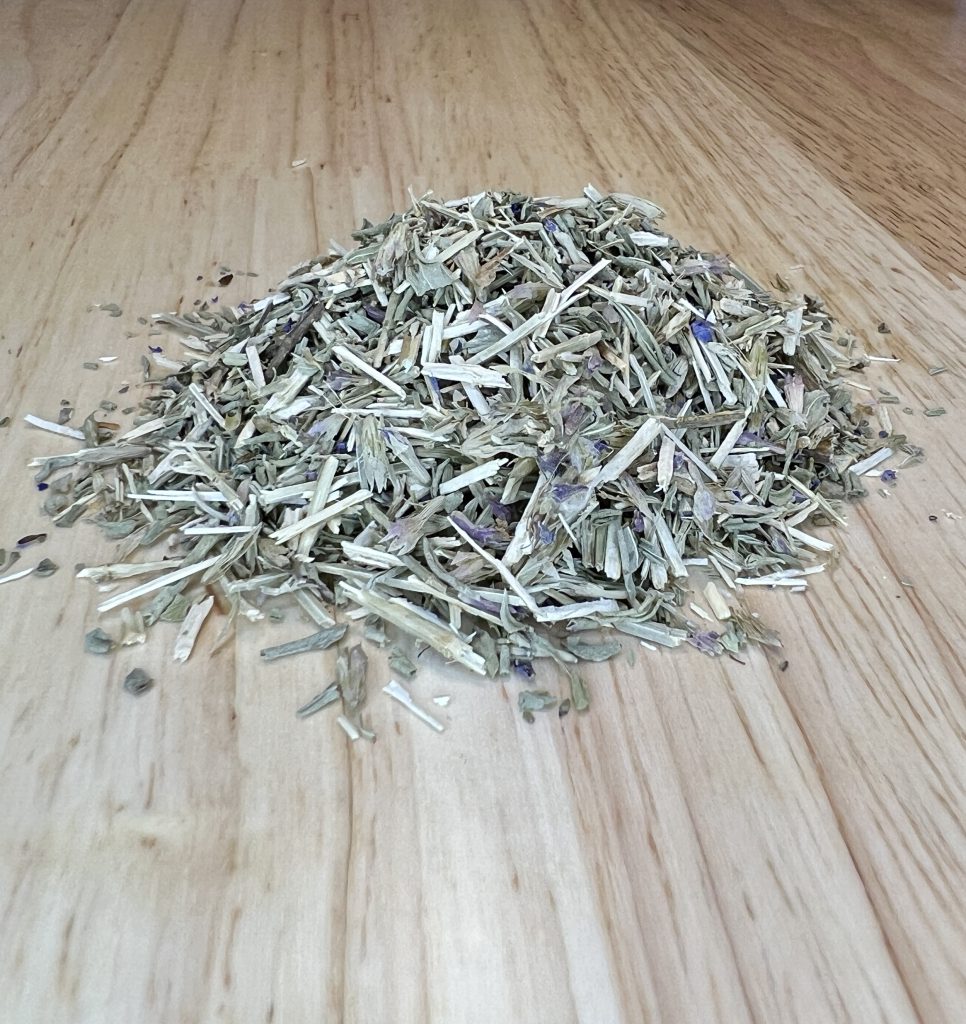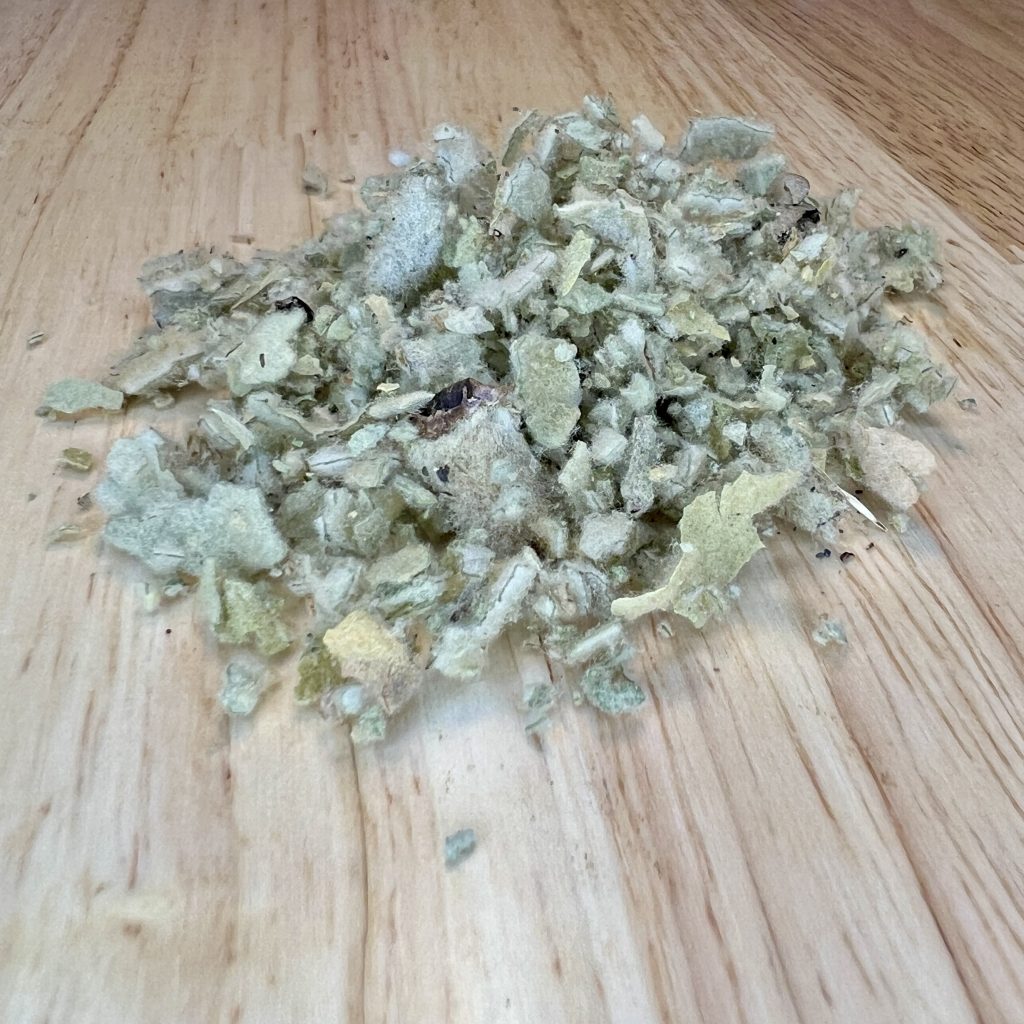Medicinal Action

Relaxant (smooth muscle)

Products containing Relaxant (smooth muscle)
Discover our collection of artisanal salves for holistic healing.
Anise Hyssop (Agastache foeniculum)
Sustainably grown and harvested through regenerative agricultural practices on small U.S. farms dedicated to soil health, biodiversity, and ethical stewardship.
Sourced directly from the grower for quality and freshness, then hand-packaged in small batches to preserve vitality.
Sold by the ounce. Example: Quantity 4 = 4 oz.
Monographs with the (Relaxant (smooth muscle)) function
Prickly Ash
Prickly Ash Bark (Zanthoxylum americanum) is a dynamic, warming tonic that encourages movement, clarity, and vitality. Traditionally used by Indigenous peoples and early North American herbalists, it is valued as a circulatory stimulant and nervine tonic — an ally for those who feel sluggish, chilled, or stagnant.
This vibrant bark enlivens the body’s rivers of circulation, stimulating both blood and lymphatic flow. Its gentle tingling on the tongue reflects its activating nature — awakening digestion, supporting healthy warmth, and promoting awareness in the periphery.
Energetically, Prickly Ash embodies the spark of renewal. It helps encourage a sense of warmth and natural circulation throughout the body, restoring aliveness and gentle momentum.
Crafted through a 60% organic cane ethanol extraction, this tincture preserves the bark’s full aromatic and bitter complexity, capturing its ancient wisdom and vital fire.
Dosage
Take 2-4 mL (approximately 20–40 drops) up to three times daily in a small amount of water or directly on the tongue.
Best taken before meals to support circulation and digestion, or as needed when feeling cold or energetically sluggish.
Pairs well with warming teas and practices that move energy — such as walking, breathwork, or gentle stretching.
Cautions
Generally well-tolerated at suggested dosages. Consult a qualified healthcare provider before use if you are:
-
Pregnant or nursing
-
Experiencing acute inflammation or hot, dry conditions
-
Managing gastrointestinal irritation or ulcers
-
Taking medications that affect circulation or blood clotting
Avoid excessive use; Prickly Ash is a stimulating herb best used in moderate amounts.
Mullein Leaf (Verbascum thapsus)
Historical Use:
Mullein has a long history of use in European folk medicine and among many Native American nations as a soothing herb for the lungs. The leaves and flowers were commonly brewed as a tea or smoked to ease coughs, bronchitis, and asthma. The plant’s soft, velvety leaves were applied as poultices to calm inflammation and promote healing of burns, wounds, and skin irritations. Mullein flowers were traditionally infused into oil to relieve earaches and reduce pain and swelling in the ear.
Current Uses:
Mullein remains a popular respiratory remedy. Its expectorant and demulcent properties help thin and move mucus, making coughs more productive and easing breathing during colds, bronchitis, and other congestive conditions. Teas, tinctures, and syrups are frequently used to soothe sore throats and support overall lung health.
Externally, mullein is applied in infused oils, poultices, and compresses to calm irritation, reduce inflammation, and assist with wound healing. Mullein flower oil continues to be a staple in ear drop preparations to ease ear discomfort and support a healthy inflammatory response.
Beyond respiratory and topical uses, mullein is sometimes used to soothe irritated mucous membranes in the digestive tract and gently support elimination when there is dryness or inflammation.
Learn More:
Want to explore more about energetics, history and more? Visit our Materia Medica section and search for this herb to deepen your understanding.



